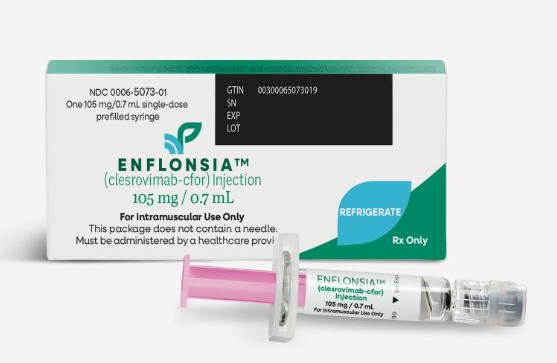A new peer-reviewed study published in the International Journal of Medical Sciences suggests that genetic differences in how infants metabolize vaccine ingredients may play a critical and previously underrecognized role in sudden infant death syndrome (SIDS)—the unexplained death of an apparently healthy infant under one year old. The authors of the study, published on Apr. 25, 2025, call for pharmacogenetic screening—a type of genetic testing—before infant vaccination to help identify infants who are at higher risk for SIDS due to genetic variability.1
The study authors, Gary S. Goldman, PhD and Richard Z. Cheng, MD, PhD, also recommended improvements in postmortem investigations of infants who die after receiving vaccines to better detect potential metabolic contributors—including immature liver enzyme activity and cytokine-induced suppression—in cases where deaths are labeled SIDS.1
The researchers conducted the study to highlight how underdeveloped liver enzymes in infants—specifically the cytochrome P450 (CYP450) enzyme system (a key liver detox pathway)—are immature at birth. Goldman and Cheng point out that underdeveloped liver enzymes may impair an infant’s ability to detoxify common vaccine excipients, like aluminum, polysorbate 80, and formaldehyde and, when combined with inflammation intentionally triggered by vaccination, the metabolic vulnerability could prolong exposure to inflammatory mediators and toxic compounds. This combination, they say, could increase the risk of adverse outcomes, including sudden death, in genetically or developmentally vulnerable and preterm infants.1
“Infants Cannot Safely Tolerate Routine Vaccination Schedules”
Epidemiologist Nicolas Hulscher, an influencer writing on Substack, commented on the study on June 3 and said:
This comprehensive paper indicates that many infants cannot safely tolerate routine vaccination schedules. By integrating pharmacogenetics, toxicology, and epidemiological evidence—including a detailed review of cytochrome P450 enzyme maturation, genetic polymorphisms, vaccine excipient toxicity, and post-vaccination death timing from VAERS [Vaccine Adverse Event Reporting System]—the authors show that underdeveloped liver enzyme systems may leave certain infants unable to detoxify vaccine components. The result is a biologically plausible mechanism linking early-life vaccination to sudden infant death, particularly in those with genetic or developmental vulnerabilities.2
VAERS Data Suggests Days Following Vaccination is a Critical Risk Window for Infant Death
This peer-reviewed study follows recent research published in Journal of the American Medical Association (JAMA) showing that SIDS rates increased 12 percent between 2020 and 2022, during the height of the COVID-19 pandemic, which is a concerning reversal after decades of decline. Despite a 24 percent overall decline in infant mortality in the U.S. since 1995, the U.S. continues to fall behind other developed nations in infant mortality. In 2022, the U.S. saw its first rise in infant deaths in decades, according to data from the U.S. Centers for Disease Control and Prevention (CDC).3
According to the CDC’s recommended childhood vaccination schedule, newborns (including preterm) commonly receive hepatitis B vaccine on the day of birth and nine doses of eight different vaccines before three months of age.3 4
Data from VAERS indicates that a significant proportion of reported infant deaths occurred within the first week after vaccination. A 2021 peer-reviewed study by Neil Z. Miller found that 58 percent of reported infant deaths that the pattern is “highly suggestive” of a potential link and warrants further investigation.3 5
Postmortem SIDS Evaluations Inconsistent and Incomplete
The Goldman and Cheng study also criticized current postmortem evaluations in infant deaths classified as SIDS, arguing that autopsies often fail to assess key metabolic and neurological markers—particularly cytochrome P450 enzyme activity and brainstem function—that could help determine the true causes of death. It notes that autopsy practices vary significantly and frequently overlook critical brain regions (such as the medulla and hippocampus), which play a vital role in cardiorespiratory regulation, the system responsible for controlling breathing and heart function—functions that often fail in cases of infants who die suddenly with an apparent explanation.1
One vaccine injury case filed in the federal Vaccine Injury Compensation Program (VICP) was cited in the Goldman/Cheng study—Boatmon v. Secretary of Health and Human Services—with the authors highlighting the fact that a thorough neuropathological exam had not been conducted, casting doubt on the validity of the SIDS classification. Additionally, brainstem abnormalities, present in up to 70% of SIDS cases, are often excluded from autopsy reports, raising concerns that vaccine-related deaths may be underreported or misclassified as SIDS.1
Need for ‘Complete Restructuring of the Childhood Hyper-Vaccination Schedule”
As the authors noted, “Current safety assessments often ignore genetic and developmental differences. Further commenting on the significance of the Goldman/Cheng study, Hulscher called for a re-evaluation of the CDC’s recommended childhood “hyper-vaccination schedule.” He wrote:
The paper highlights serious gaps in postmortem evaluations: brainstem and metabolic assessments are often skipped, leading to misclassification of deaths as unexplained SIDS. This likely obscures the real impact of vaccine-induced metabolic failure in infants with poor detox capacity.
These findings, he says, “support the urgent removal of toxic excipients from vaccines and a complete restructuring of the childhood hyper-vaccination schedule.”2
If you would like to receive an e-mail notice of the most recent articles published in The Vaccine Reaction each week, click here.
Click here to view References:1 Goldman, G.S, Cheng R Z. (2025). The immature infant liver: Cytochrome P450 enzymes and their relevance to vaccine safety and SIDS research. International Journal of Medical Sciences 22(10): 2434–2445.
2 Hulscher, N. BREAKING: Vaccines may trigger sudden infant death syndrome via brainstem failure. The Focal Points June 3, 2025.
3 Baker A. Study Finds Sudden Infant Deaths Have Increased. The Vaccine Reaction Mar. 10, 2025.
4 U.S. Centers for Disease Control and Prevention. Recommended Immunizations From Birth Through 6 Years Old, United States. Vaccine Schedule 2025. June 20, 2025
5 Miller NZ. Vaccines and sudden infant death: An analysis of the VAERS database 1990-2019 and review of the medical literature. Toxicology Reports 2021; 8: 1324–1335.











